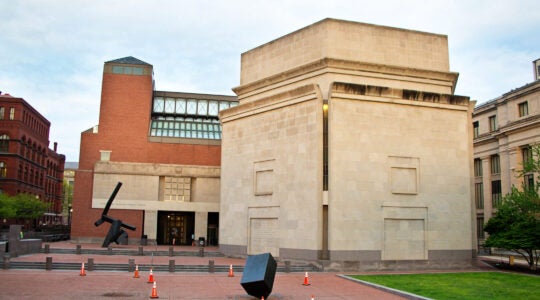SYDNEY, Australia, June 6 (JTA) — It might be seen as a straightforward case involving whether a publisher is guilty of defamation. But before a court can rule on this question, it must first be decided where the case can be held — and this decision could have far-reaching effects regarding freedom of speech over the Internet. Australian rabbi and mining magnate Joseph Gutnick wants to sue publishing giant Dow Jones for defamation in his home city of Melbourne. Last year, the online version of Barron’s, a financial newspaper, published a report claiming that Gutnick was a major client of Nahum Goldberg, an Orthodox Jew currently serving a seven-year prison sentence for money laundering and tax evasion. Goldberg had been found guilty of defrauding the Australian government out of more than $24 million. Along with being a multimillionaire from mining and other commercial activities, Gutnick leads a congregation in Melbourne, and is a major Likud supporter and a well-known figure in Israel. While Gutnick wants the case heard in Melbourne, Dow Jones, which publishes Barron’s, wants to have the case heard in the United States. Last year, Gutnick’s lawyers successfully argued that since the material was downloaded in the Australian state of Victoria, it should be deemed to have been published there — and, consequently, the case should be heard there. But the lawyer for Dow Jones appealed that decision in Australia’s High Court in Canberra, arguing that the case should be heard in New Jersey because that was where the material was uploaded to the Internet. The High Court has allowed 18 media companies — including CNN, Reuters, Yahoo and Amazon — to submit arguments in the case. This, legal experts say, will effectively allow them to back the Dow Jones appeal. Gutnick’s lawyer told the court that it is reasonable to expect Dow Jones to check the Australian laws if it is publishing a potentially defamatory article about one of the country’s businessmen. Dow Jones’ lawyer said it would be an impossible burden for Web site operators to comply with the laws of the more than 175 individual countries that have access to the Internet. The court, which has not yet ruled on the appeal, said the lawyer for Dow Jones had raised the question of a “freezing effect” on freedom of speech on the Internet. If the appeal is dismissed, the Supreme Court in Melbourne will decide if the article was defamatory.
JTA has documented Jewish history in real-time for over a century. Keep our journalism strong by joining us in supporting independent, award-winning reporting.





